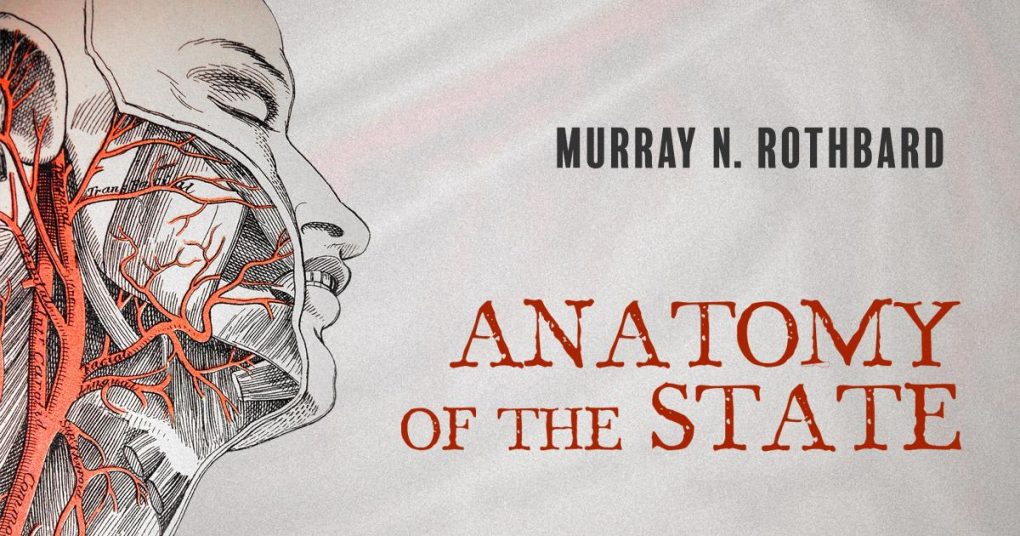
Jack Dorsey, Vipassanā meditation professional and billionaire CEO of Twitter, is understood for cultivating a diverse image as an expert and deep thinker. He is likewise popular as a supporter of bitcoin, having an individual stake and speaking at conferences to devoted hodlers. But over this previous weekend he used his substantial Twitter account (5.6 million followers!) to go an action beyond simply questioning the currency program and publish a decidedly provocative link to mises.org:
By intriguing we indicate Dorsey connected not to some short article on bitcoin or cash, however to Murray N. Rothbard’s critical 1974 essay “Anatomy of the State.” This brief missive might well represent Rothbard’s the majority of bracing and succinct attack on government as an organization, and that’s saying something. This is Rothbard at his full-throated finest, challenging the state per se as a predatory and malign force in society rather than a needed protector of rights or service provider of order. As I composed earlier this year:
[” Anatomy of the State”] demands that readers comprehend the stark nature of government, without fairy tales or niceties. It applies the exact same lens to public and private criminality. It challenges every misconception surrounding politics and statecraft, varying from “the federal government is us” to judicial review. It discusses how the state keeps legitimacy, how it broadens, how it handles other states, and eventually how it works to prevent domestic threats to its power. And it still works as the baseline analysis for understanding state power, nearly 50 years after Rothbard helped develop a blossoming anarcho-capitalist movement.
As always, Dorsey was cagey and a bit nontransparent in his Twitter habits. He used no description or follow-up. But we can only presume he meant to plant a seed, and our analytics inform us numerous 10s of countless new visitors to mises.org clicked through both to Rothbard’s essay and associated links.
However Dorsey wasn’t done, tweeting another puzzling message over the weekend about the fiftieth anniversary of Richard Nixon’s gold shock:
The hashtag #wtfhappenedin 1971, and its accompanying Twitter account, has actually been active throughout 2021 in describing completion of gold redemption in America. Like it or not, social networks is now where anyone can climb on their soapbox and attempt to advance a narrative. Subversive sites like wtfhappenedin1971.comuse twitter to do just that, helping millions comprehend the incredible harm caused by government issuance of money backed by absolutely nothing. They skillfully use shocking graphics to make the case versus inflationism and financial hedonism. And they help companies like the Mises Institute in our more comprehensive objective to show how cash has become completely damaged by politics and special interests at the cost of ordinary Americans. Thanks to #wtfhappenedin 1971 and Mr. Dorsey’s missive, the term “Rothbard” trended on Twitter all weekend– after we took the opportunity to promote what we think about the very best and most accessible book on cash ever written: Rothbard’s What Has Federal government Done to Our Cash?
Nixon’s actions half a century earlier represented nothing short of a default on the guarantee of America as a going issue. His gross impropriety, capably describedby Professor Jonathan Newman, really was the beginning of the end for any conception of the United States dollar as anything aside from a political instrument of power and inflationary empire. The gold shock marked the last-gasp end of America as a nation with any semblance of a legal federal government. It was a turning point in United States history far beyond what the books and economic experts inform us. And that turning point deserves far broader public acknowledgment, even if fifty years later on social media. Using Twitter to bring politicians and central bankers to account strikes us as exactly the kind of narrative guerilla warfare that social media was indicated for.
But we need to bring economics to account as well. Just Austrian economists provide a meaningful review of pure fiat currency, which means only Austrians have anything engaging to say about Nixon’s final closure of gold redemption. The Mengerian and Misesian explanation of how cash occurs and acquires worth as a highly commercial commodity needs no central financial or monetary authority. It requires no state. When Nixon shrugged, United States dollars ended up being totally an item of the state rather than the market. As such, fiat dollars require both a “policy” for their issuance and policymakers. Today’s Keynesians, monetarists, MMTers, supply-siders, NGDP targeters, Taylor rule supporters, and other various economic experts simply argue about how monetary policy must be performed, not whetherit should. And we all understand how it will be conducted: politically, ad hoc, and rooted in short-term thinking.
Anyone who checks out Rothbard’s “Anatomy of the State” or What Has Government Done to Our Cash?will be geared up to understand why we do not need the state to offer us cash or anything else. Thank you, Jack Dorsey, for assisting bring Rothbard to countless your followers.

